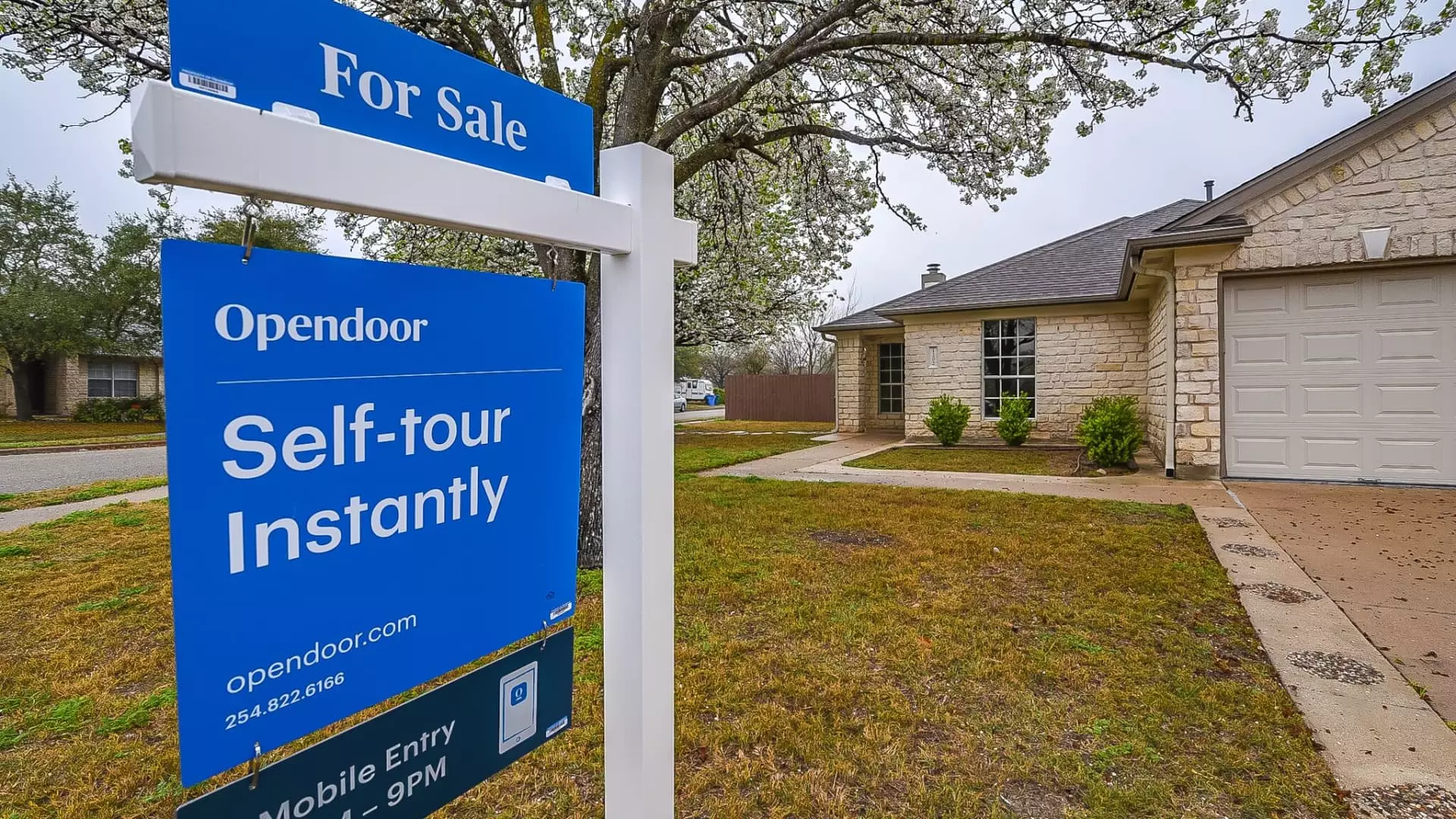The recent surge in Opendoor’s stock price, soaring nearly fivefold since July, undeniably ignited investor enthusiasm. Such meteoric rises often evoke visions of redemption for fallen giants, yet beneath the headline-grabbing gains lies a fragile foundation. The exuberance was partly driven by hedge fund interests, notably Eric Jackson’s optimistic target of $82 per share. However, anyone with a critical eye must question whether such confidence is justified amid a business model battered by economic headwinds. A 4% revenue increase in the second quarter and a narrowed loss cannot mask the structural issues weighing down this company. It’s yet another episode of market traders chasing fleeting hope, often ignoring the underlying risks that threaten to undo this “recovery.”
Temporary Patches in a Deep Wound
Opendoor’s fall from grace was dramatic—shares collapsing to below 60 cents in mid-2023—a clear sign of investor despair. The company’s prior flirtation with a reverse stock split — a desperate measure to preserve its Nasdaq listing— exemplifies the precarious position it found itself in. Now that the company is back in compliance, it might seem an achievement, but in reality, it is merely a bandage over a significant wound. Revenue plunged two-thirds from 2022 to 2023, indicating that the core issue isn’t merely market volatility but an unsustainable business model hampered by high mortgage rates and declining demand. The promise of a recovery based on increased market share and returning demand remains speculative without tangible evidence. Relying heavily on market sentiment and hedge fund endorsements is a risky proposition that could easily unravel should the macroeconomic environment shift unfavorably.
Strategic Shifts or Structural Detours?
CEO Carrie Wheeler’s emphasis on transforming Opendoor from its tried-and-true iBuying model into a referral-based, less capital-intensive entity signals recognition of the need to adapt. This pivot is arguably the most vital move in the company’s history, but it also introduces its own set of uncertainties. Transitioning from direct buying and selling to a referral-driven approach might reduce capital costs but could dilute margins and revenue streams. Moreover, the core challenge persists: the housing market remains under siege by persistently high mortgage rates and waning buyer interest. The elevated listings and record low clearance rates reinforce that the fundamental demand supportive of Opendoor’s prior business model may not fully recover soon.
The Illusory Light at the End of the Tunnel
Despite the excitement, the data tell a different story. The projected revenue for the upcoming quarter is forecasted to decline sharply, and home acquisitions are expected to plummet compared to previous periods. The market, recognizing these dismal forecasts, responded negatively in extended trading, emphasizing that speculative enthusiasm has yet to translate into genuine confidence. While hedge fund endorsements can temporarily buoy a stock, they do not resolve the core structural issues — a declining housing market and questionable profitability. The apparent rebound is thus a short-term mirage, driven by short-lived market euphoria rather than sustainable business fundamentals.
A Cautionary Perspective for Investors
From a center-right perspective that values market discipline and skepticism of unwarranted optimism, Opendoor’s current trajectory raises red flags. The company’s history of near-collapse, the reliance on macroeconomic tailwinds, and the ongoing structural challenges suggest that this isn’t a genuine comeback but a moment of hope fuelled by market speculation. While the strategic shift towards a referral model might offer some hope for longer-term sustainability, it is far from guarantees. Until visible signs of consistent revenue growth, profitability, and market demand emerge, the risk of further declines and potential failure remains significant. Investors should treat the recent optimism as a calculated gamble rather than a vindication of visionary revival.
Opendoor’s current narrative is a testament to the seduction of momentum trading, where market excitement often outpaces economic realities. Based on the evidence, anyone buying into this hype should exercise caution and remain aware that the foundations beneath this recent rally are unsteady at best.

